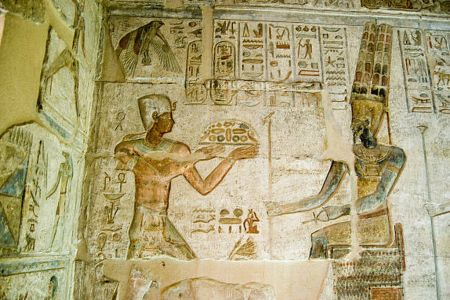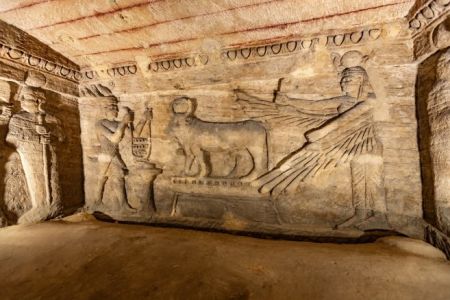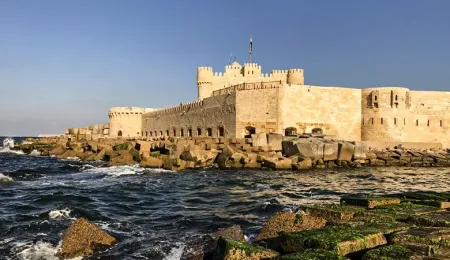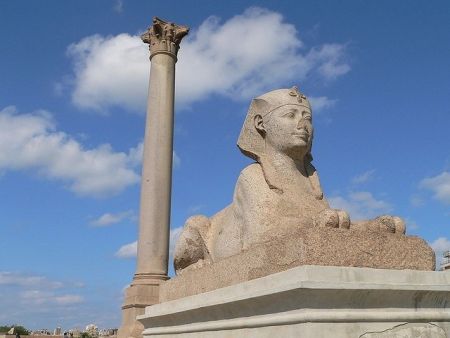alexandria bibliotheca
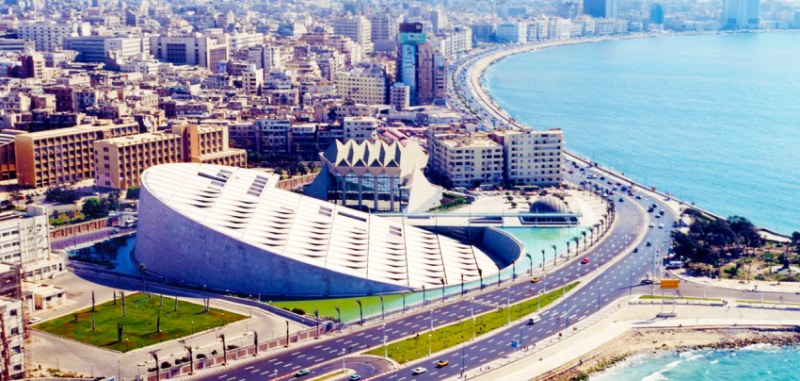
The Enduring Legacy of the Alexandria Bibliotheca: A Beacon of Ancient Knowledge
The Alexandria Bibliotheca, or the Great Library of Alexandria, stands as one of the most profound symbols of human intellectual ambition. Established in the third century BCE under the rule of Ptolemy I Soter and his successor Ptolemy II Philadelphus, this legendary institution in ancient Egypt was far more than a repository of scrolls—it was a hub of innovation, science, philosophy, and culture. The library, believed to have contained hundreds of thousands of papyrus scrolls, represented the collective wisdom of the ancient world. Scholars from Greece, Egypt, Persia, India, and beyond flocked to Alexandria, making it the brain center of antiquity. Its destruction remains one of history’s most heartbreaking losses, yet its spirit continues through modern successors like the Library of Alexandria that stands today on Egypt’s Mediterranean coast. The Alexandria Bibliotheca wasn’t just a building; it was a testament to humanity’s unending thirst for knowledge and discovery. To truly grasp its monumental role, one must explore its origins, architecture, influence on global learning, and the enduring mystery surrounding its demise.
The Foundation and Vision of the Alexandria Bibliotheca
Commissioned during the reign of the Ptolemaic dynasty, the Alexandria Bibliotheca was designed to make Egypt the intellectual capital of the world. Ptolemy I, a general under Alexander the Great, envisioned Alexandria as a city of enlightenment. His successor, Ptolemy II, expanded this vision by constructing the Mouseion—a temple dedicated to the Muses—where the library would reside. Scholars, poets, mathematicians, and astronomers found sanctuary within its marble halls. The library’s curators acquired texts from every corner of the known world, even confiscating scrolls from visiting ships to copy for their archives. This relentless pursuit of knowledge transformed the library into the ultimate center of learning, where minds like Euclid and Eratosthenes developed theories that shaped the foundations of modern mathematics and geography.
The Structure and Organization of the Library
While the exact appearance of the Alexandria Bibliotheca remains uncertain, historical accounts suggest a complex architectural masterpiece. It likely featured grand colonnades, reading rooms, lecture halls, and storage chambers for papyrus scrolls. Each section might have been devoted to specific disciplines—astronomy, medicine, philosophy, or literature—creating an organized system for categorizing human knowledge. The librarians of Alexandria were not mere caretakers; they were scholars who worked tirelessly to translate texts from various languages into Greek, ensuring accessibility across cultures. This intellectual inclusivity positioned the Bibliotheca as the heart of cross-cultural dialogue in the ancient world. Even the nearby Alexandria City flourished as a cosmopolitan junction of trade, art, and ideas, reinforcing the library’s role as a symbol of global unity through knowledge.
The Intellectual Giants of the Alexandria Bibliotheca
The library attracted some of antiquity’s brightest minds. Among them was Euclid, whose work “Elements” became the cornerstone of geometry. Archimedes visited Alexandria to exchange theories with fellow mathematicians, while Eratosthenes famously calculated the Earth’s circumference with astonishing precision using simple geometry and shadows. The physician Herophilus conducted pioneering anatomical studies, and Callimachus compiled the “Pinakes,” often regarded as the first library catalog. Together, these scholars forged advancements that would influence science, medicine, and literature for centuries. The Alexandria Bibliotheca wasn’t just a storage of scrolls—it was a living organism that breathed innovation into every discipline it touched. The environment fostered debate, experimentation, and mentorship, hallmarks of intellectual progress that modern universities still emulate.
The Cultural and Global Impact of the Alexandria Bibliotheca
The influence of the Alexandria Bibliotheca extended far beyond Egypt. Its translation projects played a vital role in preserving and disseminating knowledge from cultures as diverse as Babylon, Persia, and India. Works of philosophy, mathematics, and literature from different civilizations were translated into Greek, the lingua franca of the time. This cross-pollination of ideas laid the groundwork for later academic institutions and illuminated the interconnectedness of ancient civilizations. The library’s existence also inspired subsequent centers of learning such as the House of Wisdom in Baghdad and the great universities of medieval Europe. It served as the prototype for how knowledge could be collected, preserved, and shared for the collective advancement of humankind.
The Role of the Library in Egyptian Society
Situated within one of the most important cities of antiquity, the Alexandria Bibliotheca contributed immensely to Egypt’s cultural and political prestige. The city became a magnet for scholars and travelers, reinforcing Egypt’s image as a land of wisdom and innovation. Its location near the Mediterranean Sea facilitated an intellectual exchange between Africa, Asia, and Europe. Those visiting on Egypt Excursions today often marvel at how the spirit of the ancient library still lingers among Alexandria’s modern museums and cultural centers. The Bibliotheca’s connection to Egyptian tradition, combined with its openness to foreign knowledge, made it a unique bridge between the ancient world’s spiritual and scientific realms.
The Library and the Ptolemaic Dynasty’s Political Strategy
Beyond intellectual pursuits, the library also served as a powerful tool of diplomacy and governance. The Ptolemies recognized that cultural supremacy could reinforce political dominance. By sponsoring scholars and nurturing education, they projected an image of enlightened rulers. Collections of sacred texts and foreign manuscripts not only enriched Egypt’s knowledge but also signified control over global wisdom. This strategy elevated Egypt’s reputation and strengthened its influence over neighboring civilizations, cementing Alexandria’s status as the beacon of the Hellenistic world.
The Destruction and Mystery of the Alexandria Bibliotheca
Few historical events have captured imagination and sorrow like the destruction of the Alexandria Bibliotheca. Historical sources suggest multiple incidents contributed to its decline. The first blow likely came when Julius Caesar’s troops set fire to ships in Alexandria’s harbor in 48 BCE, inadvertently spreading flames to the library. Later, political unrest, religious upheavals, and invasions further eroded what remained. By the time of the Arab conquest in the 7th century CE, the once-great repository had vanished from existence. Yet no single event can be pinpointed as the sole cause. The mystery surrounding its destruction only amplifies its legend, turning the library into a romantic symbol of lost knowledge and the fragility of civilization’s memory.
The Rebirth: Modern Bibliotheca Alexandrina
In 2002, Egypt resurrected the spirit of the ancient library through the grand opening of the modern Bibliotheca Alexandrina. Situated near the supposed site of the original, this architectural marvel combines state-of-the-art technology with symbolic design. Its circular form, inscribed with scripts from all world alphabets, represents the eternal pursuit of knowledge. The modern library houses millions of books, digital archives, and cultural centers, serving as a bridge between ancient wisdom and contemporary innovation. Visitors exploring Alexandria can also venture to landmarks like the Citadel of Qaitbay and the Montazah Palace, immersing themselves in the city’s timeless charm. The reborn library is not merely a tribute—it’s a continuation of humanity’s collective journey toward enlightenment.
The Library’s Influence on Modern Education and Research
Today, the Bibliotheca Alexandrina stands as a global hub for research, education, and cross-cultural collaboration. It houses museums, digital archives, and research centers dedicated to science, art, and heritage. The library’s digital initiatives preserve ancient manuscripts while fostering global access to information. This revival aligns perfectly with Egypt’s broader educational goals and strengthens its reputation as a guardian of civilization’s intellectual heritage. For travelers planning Egypt Luxury Tours, a visit to this modern wonder offers a deeply rewarding experience that connects past achievements with future aspirations.
The Legacy of Knowledge: Why the Alexandria Bibliotheca Still Matters
The legend of the Alexandria Bibliotheca transcends historical boundaries. It reminds us that knowledge, though fragile, is humanity’s most enduring treasure. The library’s story underscores the importance of preservation, collaboration, and curiosity in shaping societies. Modern archives, universities, and libraries worldwide owe a debt to the vision first realized in Alexandria. Even though the original structure perished, its ideals live on in every pursuit of truth and learning. The Alexandria Bibliotheca’s enduring allure continues to inspire writers, historians, and scientists alike—a timeless reminder that once, in the heart of Egypt, the flame of knowledge burned brighter than ever before.
Alexandria’s Timeless Appeal for Modern Travelers
For modern explorers, a journey to Alexandria offers more than just breathtaking coastal views. Walking through its historic streets feels like stepping into a living story of human achievement. Alongside the library, travelers can visit nearby treasures like the Catacombs of Kom El Shoqafa and the Serapeum of Alexandria, each echoing the city’s ancient grandeur. Whether through Egypt Travel Packages or personal adventure, visiting Alexandria allows travelers to witness the cradle of ancient wisdom and imagine the countless scholars who once walked its marble halls in pursuit of truth.
Preserving the Spirit of the Alexandria Bibliotheca
The revival of the Bibliotheca Alexandrina is more than a restoration—it’s a vow to ensure that knowledge never again falls to ashes. Through international cooperation, digitization, and education, Egypt safeguards a legacy that belongs to all humanity. The modern library embodies the unity of cultures, reminding us that the thirst for knowledge transcends time and geography. It continues to attract thinkers, researchers, and dreamers who, like their ancient predecessors, believe that understanding the past is the key to illuminating the future.
Frequently Asked Questions about the Alexandria Bibliotheca
What was the main purpose of the Alexandria Bibliotheca?
The Alexandria Bibliotheca served as a center for collecting, studying, and preserving knowledge from across the world. It aimed to gather every written work known to humanity and provide scholars with resources for research and translation. It symbolized intellectual unity and the universal pursuit of wisdom.
Who founded the Alexandria Bibliotheca?
The library was established under Ptolemy I Soter and expanded by Ptolemy II Philadelphus. Both sought to transform Alexandria into the world’s intellectual capital, attracting scholars from Greece, Asia, and beyond to contribute to its expanding collection.
How was the Alexandria Bibliotheca destroyed?
Historians believe the library suffered multiple destructive events, including fires during Julius Caesar’s campaign in 48 BCE, attacks during later Roman conflicts, and possible damage during religious upheavals. Its decline was gradual, leading to its eventual disappearance.
What is the modern equivalent of the ancient library?
The modern Bibliotheca Alexandrina, inaugurated in 2002, serves as the contemporary embodiment of the ancient library. It integrates modern technology, archives, and global collaborations, continuing the mission of preserving and spreading knowledge across cultures.
Why does the Alexandria Bibliotheca remain important today?
The Alexandria Bibliotheca remains a symbol of human curiosity, intellectual perseverance, and cultural cooperation. It reminds the world that the quest for understanding is eternal, inspiring modern institutions to protect and share knowledge for future generations.


